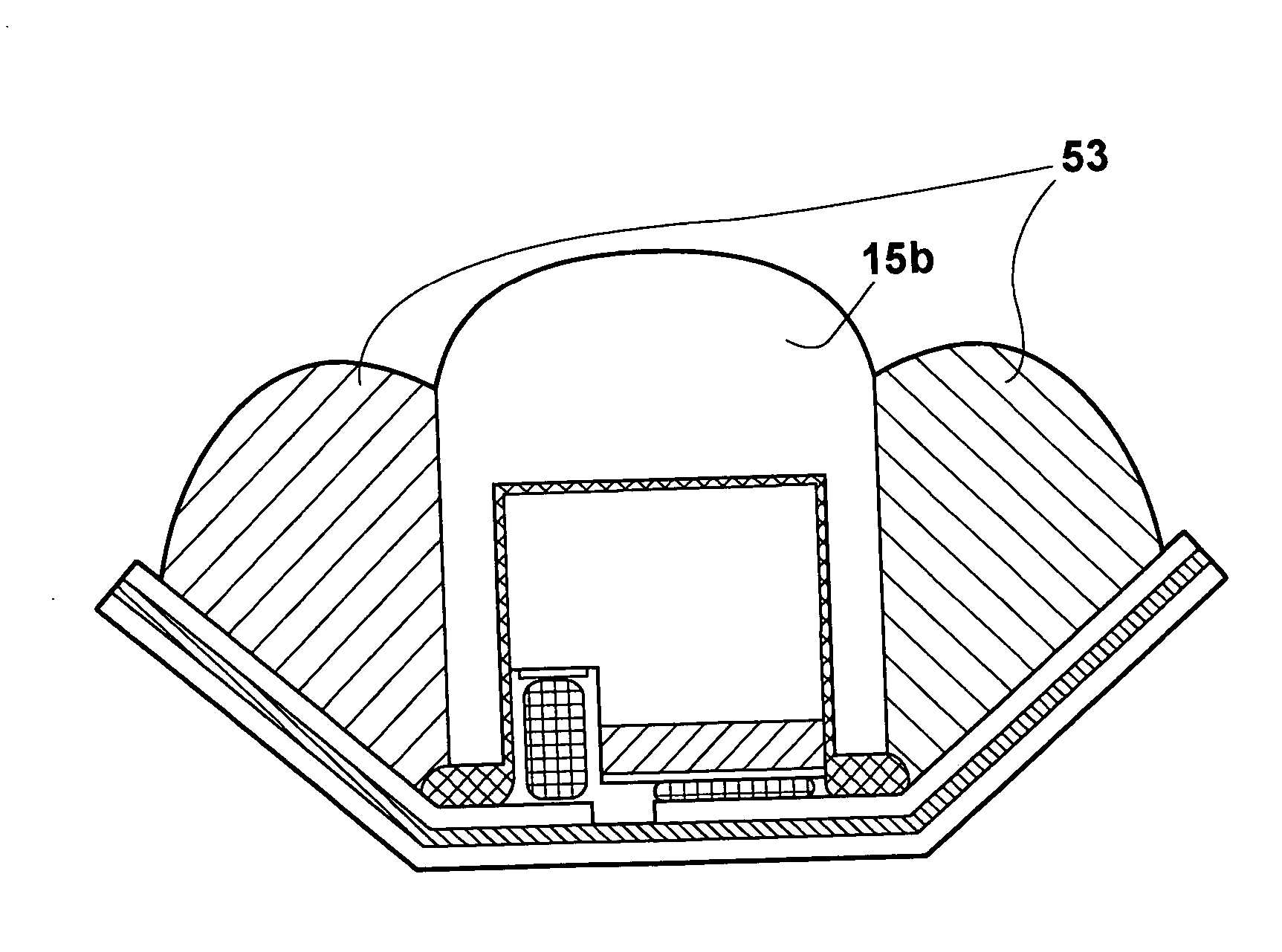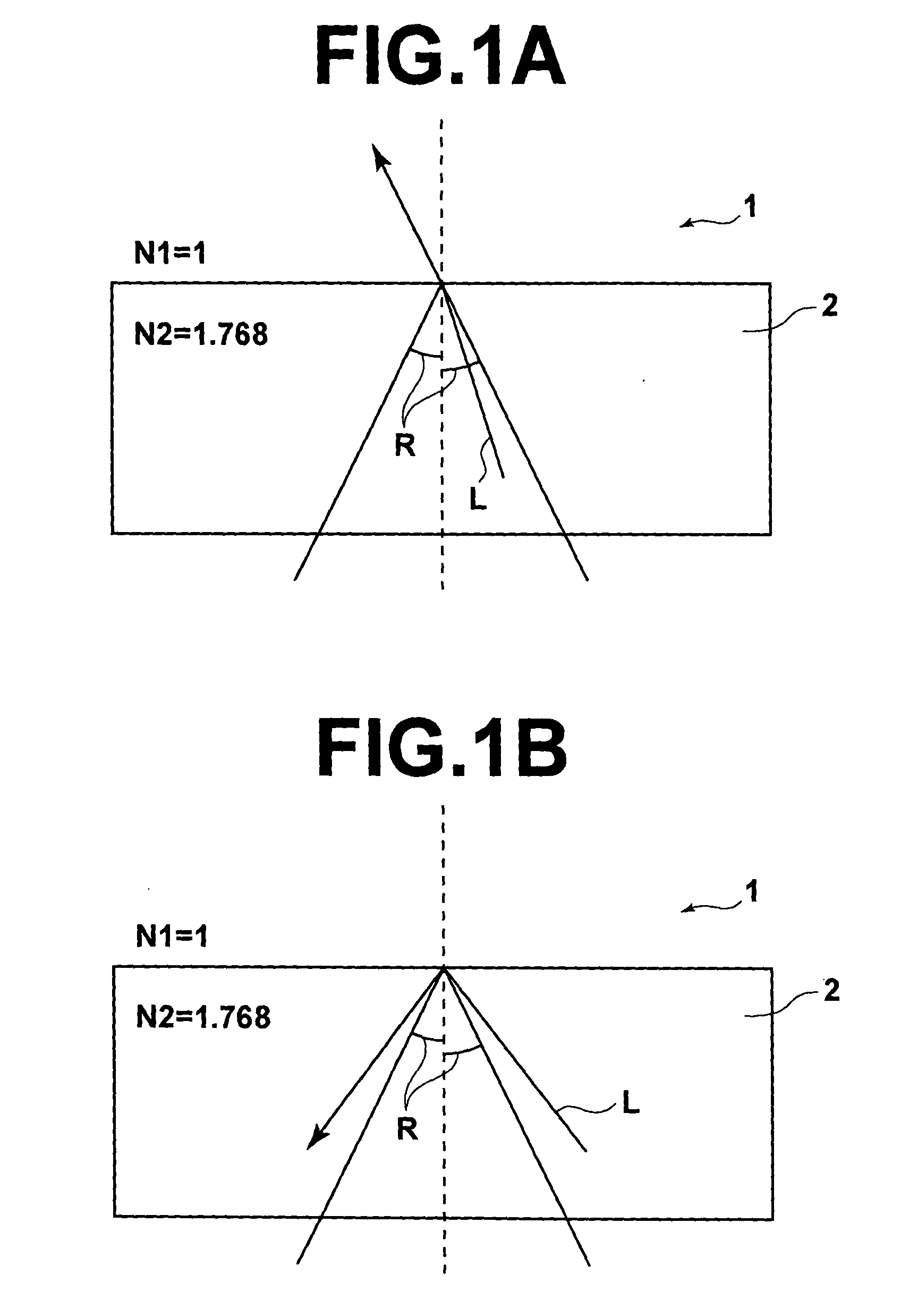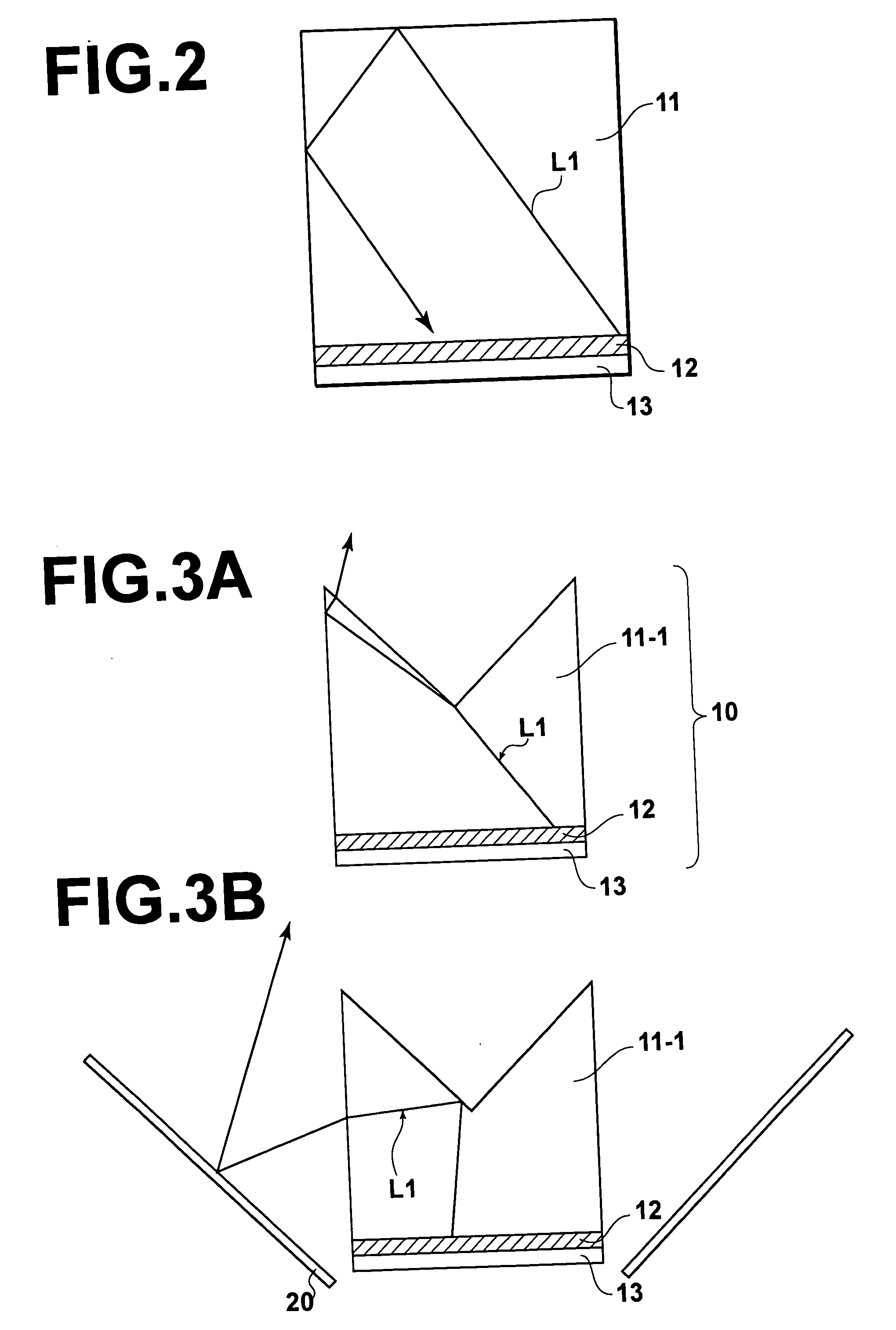Light emitting device and manufacturing method thereof
a technology of light emitting device and manufacturing method, which is applied in the direction of semiconductor/solid-state device manufacturing, semiconductor/conductor device, electrical apparatus, etc., can solve the problems of low energy conversion efficiency (optical output/input power), low emission efficiency of conventional leds having emission wavelengths suitable, and insufficient illumination intensity
- Summary
- Abstract
- Description
- Claims
- Application Information
AI Technical Summary
Benefits of technology
Problems solved by technology
Method used
Image
Examples
first embodiment
[0047] Before the explanation of the first embodiment of the present invention, the critical angle and reflection of light will be explained.
[0048] FIGS. 1A and 1B are diagrams for explaining the critical angle and reflection of light. In FIGS. 1A and 1B, it is assumed that a piece of sapphire glass 2 is placed in a space filled with air 1. The optical refractive index N1 of the air 1 is one (i.e., N1=1), and the optical refractive index N2 of the sapphire glass 2 is 1.768 (i.e., N2=1.768) At a boundary surface between mediums having different optical refractive indexes, a critical angle R is determined based on the refractive indexes. When light L is incident on the boundary surface at an incident angle not greater than the critical angle R, the light L passes through the boundary surface as illustrated in FIG. 1A. When light L is incident on the boundary surface at an incident angle greater than the critical angle R, the light L is totally reflected at the boundary surface as illu...
second embodiment
[0065] The second embodiment of the present invention will be explained below.
[0066] FIG. 11 is a schematic perspective view of a light emitting device as the second embodiment of the second aspect of the present invention.
[0067] In the light emitting device 10 according to the first embodiment illustrated in FIGS. 3A and 3B, the upper surface of the sapphire substrate 11-1 per se has a shape containing a portion inclined with respect to the upper surface of the stack of GaN-based compound semiconductor layers 12. On the other hand, in the light emitting device 30 as the second embodiment illustrated in FIG. 11, an optical element 14 is arranged in contact with the upper surface of the sapphire substrate 11-3, and the upper surface (light-exit surface) of the optical element 14 has a quadrangular pyramidal concave shape as the aforementioned shape containing a surface inclined with respect to the upper surface of the stack of GaN-based compound semiconductor layers 12. The optical e...
PUM
 Login to View More
Login to View More Abstract
Description
Claims
Application Information
 Login to View More
Login to View More - R&D
- Intellectual Property
- Life Sciences
- Materials
- Tech Scout
- Unparalleled Data Quality
- Higher Quality Content
- 60% Fewer Hallucinations
Browse by: Latest US Patents, China's latest patents, Technical Efficacy Thesaurus, Application Domain, Technology Topic, Popular Technical Reports.
© 2025 PatSnap. All rights reserved.Legal|Privacy policy|Modern Slavery Act Transparency Statement|Sitemap|About US| Contact US: help@patsnap.com



